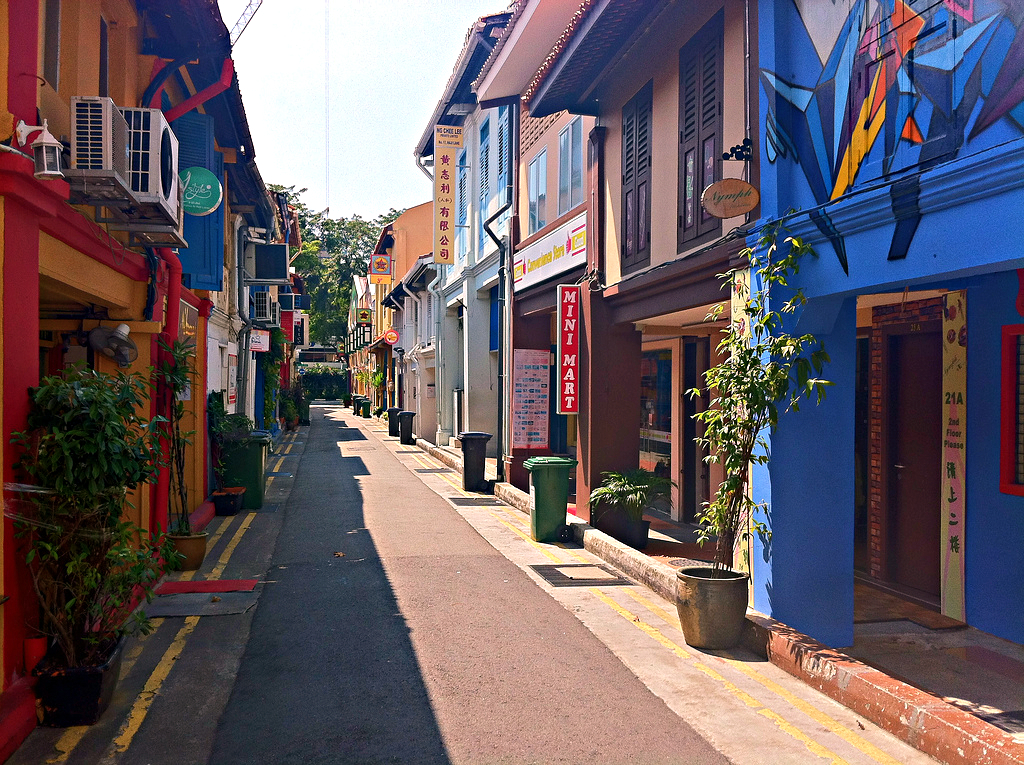If you’re a foreigner in Singapore, it can be almost impossible to speak Singlish (as opposed to being a native Singaporean, in which case it can be impossible to stop). Don’t worry, though — stick to a few basics, and you won’t have Singaporeans giving you that “look” as they inwardly cringe. Here’s what you need to know:
Read also: The Most Spectacular Spas in Singapore (if You Can Afford it)

A rundown on Singlish
Native Singaporeans speak Singlish, which is a creole language that has elements of English, Malay, Hokkien, Teochew, Cantonese, Tamil, and anything else picked up from TV.
There are three different levels of Singlish:
Acrolectal, which is what Singaporeans sound like when trying to get you to understand them. Acrolectal Singlish typically sounds like a fake American accent but follows the standard rules of English.
For example: You can probably use the train to get to your hotel.
Mesolectal, which is what Singaporeans sound like when talking to each other. Mesolectal Singlish is when certain non-English elements and words appear, but it’s not impossible to understand. The analogies and references may occasionally confuse you.
For example: Go hotel ah? I think this one you take train lor.
Basilectal, which is what Singaporeans sound like when they have multiple tattoos and spend most of their time squatting in an alley in Geylang. Basilectal Singlish is what judges struggle to understand when listening to the excuses of a local street thug. It’s almost entirely incomprehensible to foreigners. You’ll have to ask for help. (We mean that literally; you’re probably hearing it from a dark corner in the wrong part of town).
For example: Simi hotel, hotel lan lah. Kana sai, @#$%

How to use Singlish:
The basics of Singlish are:
- Repetition for emphasis
- Avoid using past tense
- Practice using “one”
- Practice lah, lor, leh, mah, hor, meh, and siah
#1 Repetition for Emphasis
It often applies to verbs:
Instead of saying “Don’t talk so much and do your work”, we might say “Don’t talk talk, do your work”. If we’re going to do a lot of sightseeing, we might say “We whole day walk walk”.
The local phrase “Don’t play play” (or don’t pray pray) means you need to take something seriously. As in: “Don’t play play, you talk about the gahmen (government) wait you kena (get) kick out”.
Also common is “die die”. The term “die die must try” means something is really good, you really need to try it.

#2 Avoid using past tense
If you want to sound Singlish, stop using the past tense. It’s “last week I go see movie”, not “I went to see a movie last week”. Or “This morning I work until damn tired”, instead of “I worked till I was damned tired this morning”.
Also, note that the indication of time (last week, this morning) come at the start of the sentence.
#3 Practice Using “One”
This throws off every European and American. When Singaporeans use “one” they are often not indicating a quantity. Instead, it suggests uniqueness (as in “one of a kind”).
For example, if someone is a jerk, we might complain “Why you always this kind one?” Which means “Why do you always behave in this way”.
We might also use it for emphasis, as in “This is not I say one, this is the boss say one.”
It’s a little difficult to explain when the “one” should be in a sentence; it just has to be practised until you get it. It comes from the use of “ge” or “ga” in Cantonese, so if you speak that dialect you’ll pick it up sooner.

#4 Practice Lah, Lor, Leh, Mah, Hor, Meh, and Siah
We put these at the end of our sentences. Each one serves a purpose. While you need to be Singaporean to really get them, you can stick to the basic usage:
Lah: Generally used to sound apologetic, or commanding. Yes, that makes no sense, but here’s how it works:
When issuing a command, add lah behind it. As in “Just buy the tickets lah.”
When trying to be apologetic, add lah as well. “Not my fault lah!”
It gets complicated, so newbies should stick to those two uses.
Lor: Often used to denote acceptance or resignation. As in “The police caught me on camera, so no choice. I have to pay the fine lor.”
Leh: Pronounced like the French “Le”. Used to make a criticism or command, in a way that suggests you are not trying to be a douchebag. Very important for expatriate bosses. For example:
“Eh, you suppose to give me the report last Tuesday leh.”
“The movie you recommend not very good leh.”

Hor: Very advanced Singlish term. Don’t bother trying to understand the full range of use, until you’ve lived here many years. This is to express agreement or ask another for agreement.
“Yah hor, I also remember that restaurant quite nice.”
“Then hor, after you apply for passport then you call me.”
Meh: Denotes disbelief or shock. Always used with rhetorical questions. Using “meh” makes your question a challenge, and implies that you want the other person to follow up with an explanation.
“You see the car coming you still run across the road meh?”
“This bag got my name you still think is your bag meh?”
Siah: Malays speakers may use “sial” instead. This just means “very”, or “to the max”.
“Actually I want to wear my grim reaper costume. Luckily they tell me the Halloween Party for sick children in the hospital siah.”
“I thought budget airline cheap, after pay airport tax damn expensive siah.’
Stick to the Basics and Singaporeans Won’t Cringe
Those are the absolute basics. There are wider uses for Singlish terms, but those have to be…well, internalised. Stick to the basics and you won’t go wrong.

French Le is pronounced ‘lurh’ in French, so I think it’s not a good way to describe ‘leh’. Other than that this is the best article I have ever read describing how to use Singlish fillers, will be sure to share 🙂